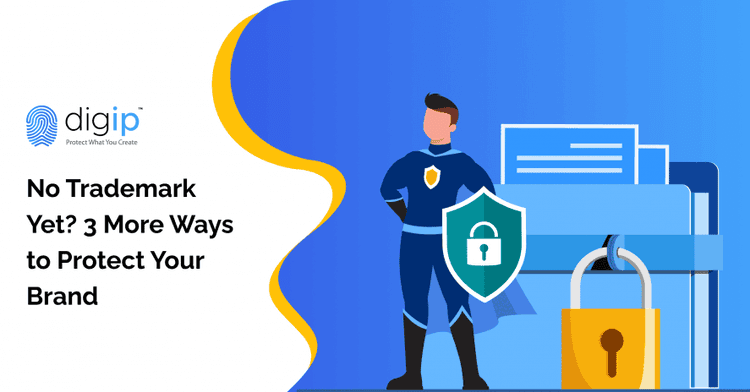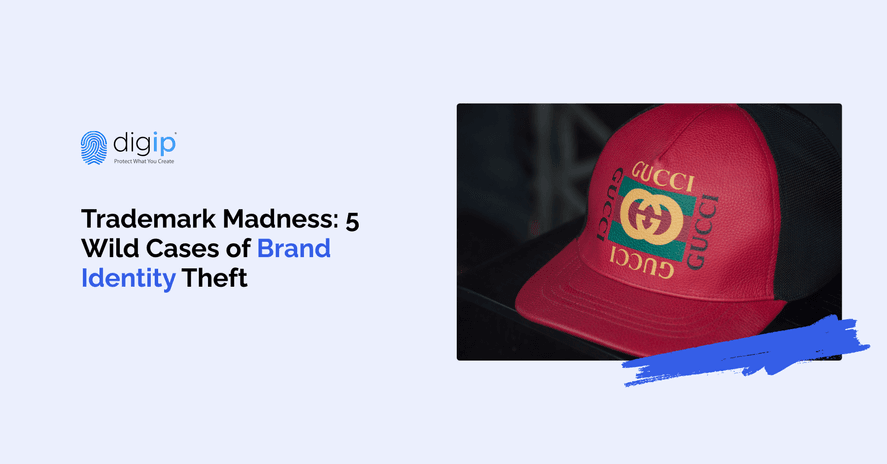
- Trademark
- Domain
No Trademark Yet? 3 More Ways to Protect Your Brand
It can take years to build a good reputation and loyal customer base, but you can lose it all in just a matter of days if you don't take precautions to protect your brand.
Trademark registration provides the most comprehensive protection for branding. But with so much else to worry about, it's not always the first thing on the list of priorities for small business owners.
The best way to protect your brand in the long term is to create an intellectual property strategy that includes trademark registration and a number of other alternatives. This way, if someone tries to steal or misuse your brand name or logo down the road, you'll always have the means to retaliate.
What is a Trademark?
A trademark is a word, phrase, logo, image, sound, smell, shape, color, or a combination of these elements that sets your business apart from others. These are registered with trademark offices in order to prevent misuse by third parties. Trademarks can be secured through international or federal registration,
Registered trademarks like names, logos, and slogans are a crucial part of any business' identity. They help consumers identify your brand and know what to expect when they interact with you. If you don’t secure protection for these identifying marks, you risk being copied by others and losing out on valuable market share.
Protecting Your Brand Without a Registered Trademark
There are many ways to protect your brand without registering a trademark, but it's important to take action as early as possible. Here are some steps you can take to make sure that your brand is protected.
Get Familiar with Common Law Trademark Rights
A common law trademark is a type of trademark that is established through use rather than registration with the state or federal government.
Common law trademarks are based on first use in commerce within a geographic region. You can conduct a trademark search to see if your brand name is still available.
To establish trademark rights through use, you must use the mark in connection with the goods and services you sell. This includes using it in social media, advertising, and other promotional materials. You can express your ownership of a trademark by using the unregistered trademark symbol beside it: ™ for products and ℠ for service providers.
Common law protects local and smaller businesses that have established goodwill with customers over an extended period of time. But these rights come with limitations.
First, common law rights can only be enforced within a limited geographic area. You can't stop someone else from using your trademark in another part of the country if they were first to use it there.
Second, it is harder to prove your ownership over common law trademarks. Because common law trademarks are not recorded in any government documents, then you'll need to keep copies of all relevant proof, starting from the mark’s first use.
Lastly, common law trademarks are harder to enforce. While common law trademark infringement cases may be allowed to proceed in court, these rarely proceed. Even if you are able to bring an office action to court, it is important to note that you may not be able to claim financial damages.
Register Your Company
Registering your business with your local government office can be a good way to protect your brand, especially if you only operate within one area.
When you register your company, you establish yourself as a legitimate business entity in the eyes of the state, county, or city where you do business. This names you the official owner of your company and its branding, which can be helpful in case someone else tries to use your name or logo in their own work.
While it's not as strong of a protection as registering a trademark, company registration can still help protect you against a direct competitor using the same name or visual assets.

Register Your Domain Name
Registering your domain name is one of the most immediate steps you can take to protect your brand. This makes it easier for people to find you online while protecting your business from significant cyber threats.
Registering your brand name as a domain protects you from cybersquatting. This refers to the practice where third parties, also referred to as domain pirates, register your brand’s domain name with bad faith intent.
Cybersquatters normally hold on to multiple domain named and then attempt to sell them to the trademark owners at an inflated price. For businesses large and small, this can be extremely costly.
Pirates can also use your domain name to create fake websites that spread malicious content, sell counterfeit products, or trick your customers into giving away personal and financial information.
If you experience anything like this, you will be able to file a dispute with the Internet Corporation for Assigned Names and Numbers (ICANN) to seize or shut down the infringing domains.
Another key benefit of domain name registration is that it can keep other businesses from registering your brand as a trademark before you can. Your domain can act as proof of prior use, which means anyone attempting to register your name as a trademark will have a lower chance of being approved.
Domain registration is typically quicker and more affordable than filing a trademark application, which makes it a good option for businesses that are just starting out.
If you have the means, register your business name with multiple top-level domains (TLDs), such as .com, .net, and .org. This makes it more difficult for someone else to use those branded domains to set up fake sites or take advantage of your name in some way.
In Conclusion
You've invested a lot of time and money into building your brand, so it's important to protect it. Trademarks are an excellent way to do that, but they're not the only legal tool available.
Combining trademarks with other intellectual property protections allows you to enjoy comprehensive protection without having to wait for your trademark to be registered. The key is knowing what protections are available to you and how they work. Once you've done your research, you'll be able to decide which one makes sense for your business or project.
Protect your brand today!
- Trademark
- Domain



